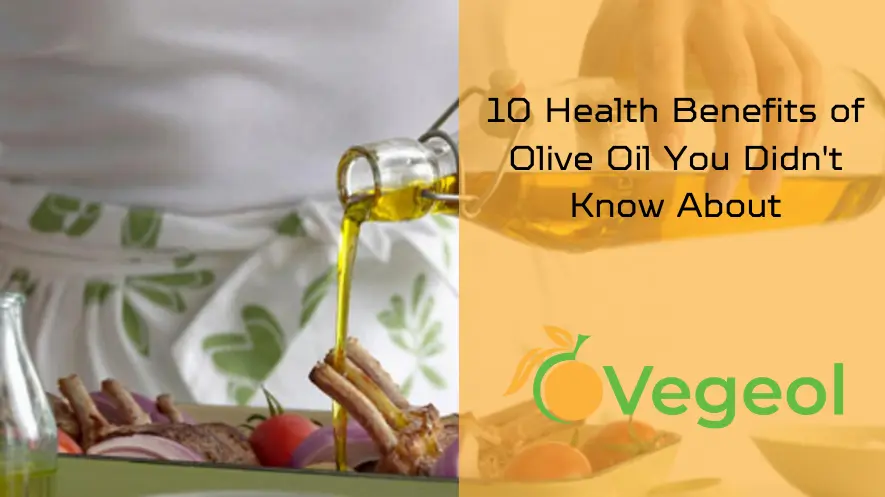Explore the heart-healthy benefits of olive oil. Rich in monounsaturated fats, olive oil is proven to boost good HDL cholesterol and lower bad LDL cholesterol, making it a wise choice for your diet. Dive into a world of better health with olive oil
Adding high phenolic extra virgin olive oil (EVOO) to your diet can help keep cholesterol levels low. It reduces bad LDL cholesterol and raises good HDL cholesterol in the bloodstream, which can decrease your chances of heart disease.
EVOO is also rich in plant defence chemicals, antioxidants, and essential vitamins and minerals. It makes a healthy replacement for margarine, butter, and other unhealthy fats.
It’s High in Monounsaturated Fats
Cholesterol is a fatty substance that helps cells function, but too much cholesterol can build up in your arteries and increase your risk for heart disease. You can lower your bad cholesterol by replacing saturated fats in your diet with unsaturated fats like olive oil.
Olive oil contains a type of monounsaturated fat called oleic acid, which may help lower your “bad” cholesterol (LDL) and raise your “good” cholesterol (HDL). Choose extra virgin olive oil (EVOO) that has undergone less processing for the best results.
In addition to being a good source of monounsaturated fats, EVOO is rich in anti-inflammatory omega-9 fatty acids and antioxidants such as polyphenols and tocotrienols. Research suggests that these compounds help reduce the risk of high blood pressure and heart disease.
When you consume EVOO, the oil passes through your digestive system where it gets broken down by bacteria to produce short-chain fatty acids (SCFAs). SCFAs fuel intestinal cells, strengthen the gut lining, and protect against inflammation. Research suggests that people who consume a lot of olive oil have more beneficial bacteria and fewer disease-causing bacteria in their digestive systems.
Unlike some other oils, EVOO has a low oxidation rate and doesn’t become rancid easily. This means that EVOO can be kept for longer periods of time before it needs to be replaced.
Olive oil is a great source of vitamin E, a powerful antioxidant that helps protect against heart disease and cancer. Studies suggest that people who regularly eat a diet high in olive oil have a lower risk of heart disease and a better chance of surviving a heart attack or stroke.
Including olive oil in your diet daily can also improve your brain health. One study found that a Mediterranean diet high in olive oil and other healthy foods can slow down the onset of Alzheimer’s disease, which is caused by a buildup of brain plaques. The same study also found that a diet high in olive oil can increase your memory and reduce symptoms of mild cognitive impairment. More research is needed to confirm these findings, but they are promising.
It’s Rich in Antioxidants
In a word, olive oil is chock full of antioxidants. Antioxidants are natural substances that protect against diseases and premature aging by neutralizing free radicals in the body. When consumed regularly, they can help reduce high cholesterol levels by preventing lipids or fats from sticking to the arteries. They also work to increase good cholesterol or HDL levels while decreasing bad LDL levels in the bloodstream.
The difference between regular and olive oil is that the latter is rich in disease-fighting chemicals called polyphenols. These can help prevent heart disease, cancer and other health problems. The less processed olive oil (known as extra virgin, or EVOO) is generally considered to be the healthiest choice. This is because it is pressed mechanically from fresh, ripe olives without the use of any heat or chemical solvents. As such, it retains more of the phenolic compounds than does regular refined olive oil.
Among the many antioxidants in olive oil, hydroxytyrosol and its derivatives are particularly effective at reducing high cholesterol levels because they stop bad cholesterol from oxidizing in the blood vessels. It has also been found to prevent the formation of atherosclerotic plaque in arteries and reduce blood pressure.
Other important antioxidants in olive oil include alpha-tocopherol, which is one of the eight members of the vitamin E family. This compound has been shown to improve cardiovascular function, boost immune system strength and reduce the risk of cancer.
The MUFAs in olive oil have been shown to positively alter the fatty acid profile in the body, decreasing total cholesterol and low-density lipoprotein (LDL) cholesterol levels, while increasing high-density lipoprotein (HDL) cholesterol and triglyceride levels. In addition, it has been shown to increase the production of protective prostaglandins, which help maintain normal blood clotting and reduce inflammation in the cardiovascular system.
The benefits of incorporating olive oil into your diet are clear. It’s no wonder that the Mediterranean diet has a long history of association with vibrant health and longevity. In fact, areas that make up the Blue Zones* – such as Greece, Italy and Spain — have some of the lowest rates of chronic diseases in the world.
It’s Low in Trans Fats
There’s no doubt that a diet that includes olive oil is healthier than one full of saturated fats (butter, mayonnaise) and trans fats (margarine). In fact, the Mediterranean diet is the healthiest eating pattern in the world, and regularly adding olive oil to it has been linked to lowering the risk of heart disease. It also helps you lower your bad cholesterol levels and increase the good ones, helping you avoid artery blockages and heart attacks.
It’s important to note, however, that the type of olive oil you choose matters. You want to look for a low-sodium, extra virgin variety to get the most benefits. Other varieties may have added flavorings, which can change the chemical structure of the oil and interfere with its ability to reduce inflammation and protect cellular function.
You’ll also want to make sure that your olive oil isn’t processed in any way. This is especially true if you’re planning to use it for cooking, as heating oils creates trans fats, which can be harmful to your heart. This happens during partial hydrogenation, which is a process that turns liquid unsaturated fats into solid or semi-solid fats with an extended shelf life.
When choosing olive oil for cooking, you’ll find that the majority of it is made up of monounsaturated fats, which are highly resistant to heat. This makes it a better choice for sauteing, frying and baking.
It’s important to note that the polyphenols in olive oil are also heat-resistant, which can help protect you against oxidative damage. But it’s worth keeping in mind that they degrade over time, so eating the olive oil fresh and raw will give you the most protection.
It’s Easy to Add to Your Diet
When you add olive oil to your diet, it’s a simple way to improve your cholesterol. Using it to replace less healthy fats like butter can help to lower your cholesterol and increase HDL levels, which is good for your heart health.
Cholesterol is a fatty, waxy substance that the body creates naturally. However, too much of it can lead to serious health issues including heart disease and a buildup in the arteries. This can be dangerous, especially if your cholesterol levels are above 240. The best way to control your cholesterol levels is by eating a balanced diet and using healthy fats, such as monounsaturated ones found in olive oil, to prepare your food.
Studies have shown that eating a diet high in monounsaturated fats reduces cholesterol and blood pressure, which helps to prevent cardiovascular diseases, such as heart attacks and strokes. The type of monounsaturated fat in olive oil is called oleic acid, and it has been linked to the lowering of LDL cholesterol in your bloodstream. Another benefit of oleic acid is that it slows down the breakdown of the fatty deposits in the artery walls, and this can help to avoid atherosclerosis.
A diet rich in monounsaturated fats can also reduce triglycerides, which are another risk factor for heart disease. When triglycerides are too high, they can block blood flow to your heart and brain. The good news is that replacing unhealthier fats with olive oil can significantly decrease your triglyceride levels.
Adding olive oil to your diet can be one of the easiest changes you can make, and it is a great way to get more of these healthy fats into your daily meals. However, not all types of olive oil are created equal. The highest quality is extra virgin olive oil, which has undergone the least processing and contains the most antioxidants and polyphenols.
EVOO is a versatile fat that can be used to season and cook almost any food. You can drizzle EVOO on salads, stir fry vegetables in it, or use it as a dip for bread and olives. Make sure to look for an organic, high-quality EVOO, such as Hypereleon, that has earned global recognition, awards and reviews.


